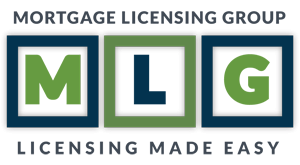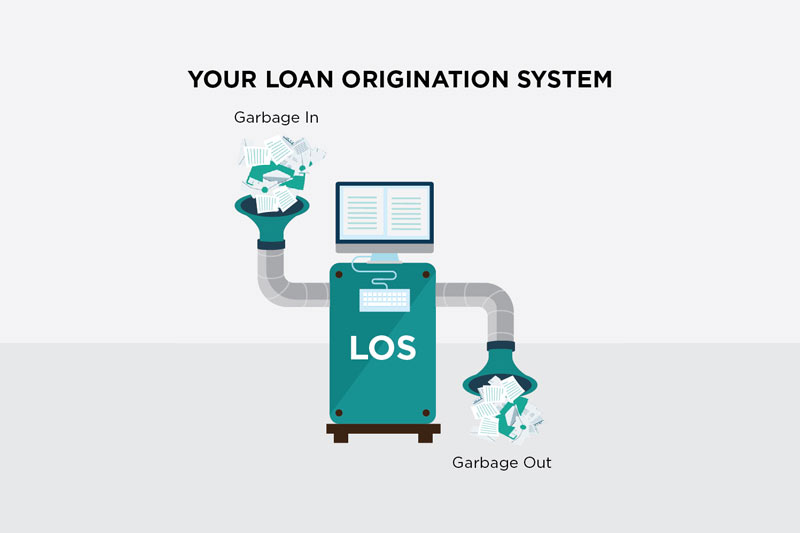Loan Origination Systems Pt 1 – Garbage in Garbage Out!
Learn How Missing Information Leads to Inaccurate Reporting, Resulting in Audits and Fines…
Loan originators and brokers are the bloodline of every mortgage company, while Loan Origination Systems (LOS) serve as the backbone of their operation. Being the system that tracks all of the critical information about loans and borrowers, your LOS is only as effective as the data entered.
Inaccurate or missing information in your LOS may not always result in audits and fines, but it does make generating accurate reports more challenging and stressful than it needs to be, and in some cases, makes it impossible to verify the reporting integrity is 100% accurate.
Operating in a fast and loose manner elevates the risk of penalties, audits and fines, which is why ensuring data accuracy is so crucial for the health of your mortgage business. Therefore, we advise mortgage companies to think of the negative consequences mentioned above, as the Rule not the Exception. It’s just a matter of time.
In our two-part series of articles, we provide an overview of capabilities that loan origination software systems provide and make a case for why it is in every mortgage company’s best interest to invest the time and energy into developing standard protocols that minimize errors and ensure the quality and accuracy of the data that is added to their LOS.
Loan Origination System Capabilities:
Loan Origination Systems, commonly understood as online loan origination software systems, were originally developed to move lending processes from paper to electronic records. These systems have, over time, evolved to handle not only loan related tasks, but data collection and retention as well.
By streamlining loan processes, LOS software significantly improves efficiency, and when used correctly can help reduce risk, by accurately assessing customers creditworthiness, providing companies with the visibility needed to make sound financial decisions and mitigate potential liabilities.
In today’s mortgage lending market, the use of an LOS system is as essential to maintaining a competitive advantage as it is to minimizing errors while providing exceptional service to customers.
Loan-related tasks typically supported by an LOS include:
- Automation of data submission from customers
- Verification of the authenticity for digital documents
- Capacity for direct underwriting (DU)
- Integration of third-party data resources
- Workflow model automation
Data collection and retention found in many LOS include:
Statement spreading: A core component for conducting financial analyses, reporting, data collection, global cash flow, and covenants.
Exception tracking: The administrative and relationship aspects of loan portfolio management, which can improve credit quality and compliance.
Credit memo automation: Updates credit memos with data used throughout the loan origination process.
Portfolio monitoring: Aggregation of data and scoring to minimize risk, save time, and give you an overall picture of your entire loan portfolio.
Loan pricing: For detailed information that factors, cost of funds, risk premiums, and other overhead costs that impact loan pricing.
As illustrated above, these systems are powerful, bringing a manageable level of simplicity to a complex set of data driven decisions. Providing a clear view of borrower transactions across all channels and products. The importance of these systems, in a modern lending environment, cannot be overstated.
Additionally, a well-managed LOS serves as an integral component for compiling information needed to meet regulatory requirements for record retention, state audits and reporting.
All of these factors drive the need for data integrity, as failure to consistently maintain accuracy will result in incorrect reporting to regulatory agencies, which can put your company and you at risk.
LOS are powerful and provide important tools, so what’s next?
In this article we defined the scope of LOS capabilities and the great many ways they have positively impacted the mortgage lending and origination processes. In part two we’ll examine the built-in reporting and compliance mechanisms that help protect your company as well as provide insight into self-regulated processes and policies to ensure data integrity.
Check back soon for part two, and while you’re visiting our site, take a moment to discover the benefits of MLG’s licensing services that cover your assets with help from trusted licensing professionals.
Have questions? Give us a call at 1(866) 576-7726
The Mortgage Licensing Group, Inc. is a full-service mortgage licensing firm headquartered in Southern California that is recognized throughout the industry as an experienced and reliable service provider. Established in 2006, our company has been at the forefront of the ever-changing rules and regulations, helping alleviate the often-daunting task of meeting our clientele’s diverse state licensing requirements.

